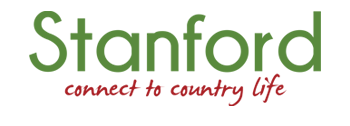Of course, uncertainty lies ahead, which makes engaging and communicating with our partners, industry experts, members and associations is key as we scenario plan looking forward. Our primary market (overseas) continues to see exponential growth in infections and in all instances, the recovery of the tourism industry is entirely dependent on the reopening of all borders (theirs as well as ours) and the resumption of international flights once again.
We are aware that Tourism is the game-changer in our country for both community upliftment as well as wildlife protection. Tourism recovery therefore needs to spearhead any recovery plan. The chain of businesses that support tourism (travel agencies, tour operators, activity owners and accommodation and food providers) therefore need to ensure that they survive the immediate rough road in order to entice the return of travel demand in South Africa asap.
The impact that this pandemic will have on our interconnected industry has to be understood from a few viewpoints looking forward:
Possible vaccination
- As we’ve read, clinical trials are under way, but it is estimated that a vaccine may not be available for another 12-18 months. With such a high infection rate of the disease, ongoing, intermittent lockdowns could possibly become a norm in order to assist the health providers in coping with the load.
Opening of international borders
- For our source markets to return, three things need to be in place: healthy travellers (our source markets however have the highest rate of infections), those with disposable income (all economies are taking a hit which will impact directly on individual disposable income), and international flights back in operation (good news … Emirates have just launched a rapid COVID-19 on-site passenger test program using finger prick blood testing and pre-flight testing will become the norm moving forward)
- A plus for consideration however …. because our source market’s personal spending has been physically constrained (as ours have during lockdown), disposable income may be less impacted than initially thought, which could drive recovery demand for travel post the initial crisis.
SA’s potential to re-open and welcome tourists
- Because of South Africa’s quick acting and decisive leadership (speared due to the vulnerability of a large number of our population), the slow uptake of infections and the lull in the projected curve (possibly due to the current BCG programs in South Africa), together with aggressive door-to-door contact trace testing, we can be cautiously optimistic that containment will not reach the explosive scale of the slower acting source markets we rely on, launching South Africa to the top of the list as a destination market when travel opportunities do return.
Interdependence between the tourism industry pillars
- Flights: both regional and international routes will return slowly based solely on confidence in control of the virus by both airlines AND governments as ‘business returns to normal’
- Tour operators: those offering the full package from flight to activity to accommodation, have been encouraged to practise postponement rather than cancellation (you’ve all seen the #postponedontcancel campaigns) in as many cases as possible, providing a measure of belief that travel will pick up more rapidly post crises than if new business were to be sought from scratch after travel restrictions are lifted, thereby providing an initial pipeline of business as travel confidence and health reassurance (from both airlines and governments as per above) picks up again over a projected 6-12 month lead time.
- Accommodation and Activities: until the above two travel market suppliers are once again operating, we must rely on local and regional markets in the Western Cape for heads in beds and feet at our establishments. Pricing restructure is going to be key in this instance, together with COVID-19 safety measure reassurance to visitors, to entice local market travel to start the travel wave once again, and in time, due to our weaker (in this case, therefore more appealing) emerging market currency, possibly appeal to the international market sooner than others.
As we have all felt so longingly during lockdown, our desire to connect with both nature AND our fellow human beings is strong and runs to the core of human nature. This need for connectedness will drive travel tourism once again. It will be back. They will be back.
In the meantime however, our step up (individual, business as well as government) to support those in need during this crisis further emphasises the connection between tourism and poverty alleviation as well as education and wildlife preservation for which our future visitors will feel further motivated in support of when considering travel to South Africa once again.
So get involved.
Do what you can to help in the meantime.
We can only get through this by helping one another.
Some worthwhile local causes to get involved with or support through donations at this time:
Food Parcel Schemes in Stanford: https://www.facebook.com/Stanford-Village-Foundation-109780980691328/
The Foundation is a Public Benefit Organisation (Non-profit Company) with the aim to facilitate and coordinate projects and programmes that will benefit the entire Stanford community and ensure overarching sustainability
Contact: 028 341 0430
Stanford Rotary: https://www.facebook.com/groups/130813770283217/
Situated in the Overstrand area of the Western Cape, our small Club consists of 10 members and is active with Soup Kitchens, Swap Shops, Winter Warmth and Youth/Early Childhood Development Projects.
Contact: stanford@rotaryclub.org.za
Food4Thought: https://www.facebook.com/food4thoughtstanford/
Food 4 Thought Community Projects NPC, runs a successful
and well-loved Xhosa pre-school in Stanford, Western Cape, South Africa.
We are an early child development (ECD) school for children aged 3 to 6 years old.
Our language of tuition is IsiXhosa. We also encourage the use of English as a second language.
Our day starts at 7.00am and the children go home at 4.00pm.
We feed breakfast, lunch and snacks.
We provide safe transport to and from school.
We teach using a curriculum accredited by the South African government.
Contact: food4thoughtstanford@gmail.com
Creative Works: https://www.facebook.com/CreativeWorksSA/
Creative Works aims to promote a nurturing, safe and stimulating environment for children and young adults to explore their creative potential
Contact: regina@creativeskillsfactory.co.za
Children’s Book Network: https://www.facebook.com/ChildrensBook/
Children’s Book Network (CBN) was founded by Gçina Mhlophe, Lesley Beake & Sindiwe Magona. Our purpose is to bring books to children and children to books.
Contact: info@childrensbook.co.za
Animal Welfare: https://www.facebook.com/StanfordAnimalWelfareSociety/
SAWS aka Stanford Animal Welfare Society are a group of voluntary Stanford citizens that devote our time to save and help our unprivileged Stanford animals.
Contact: mailto:sawsstanford@gmail.com

